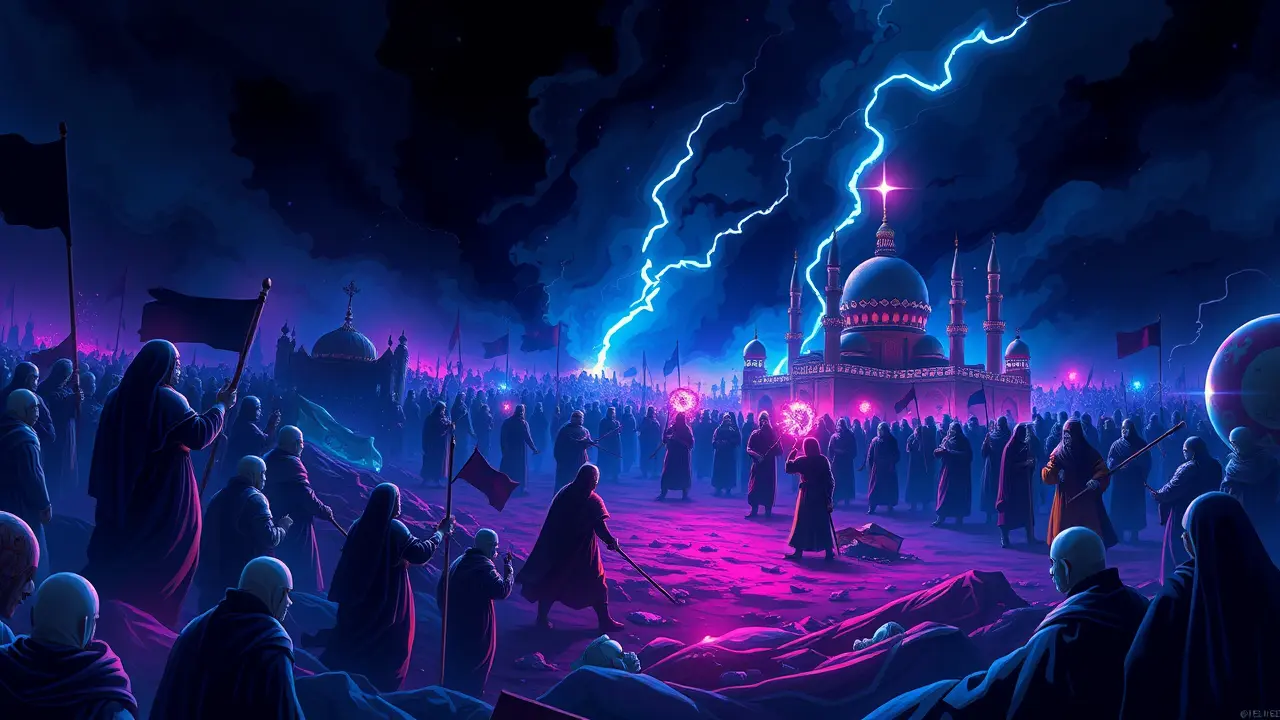
SciencearchaeologyExcavations and Discoveries
This 14th century story fooled the world about the Black Death
RO
Robert Hayes
3 hours ago7 min read
The annals of history are replete with narratives that, through sheer repetition, ossify into accepted fact, and the prevailing understanding of the Black Death's terrifying march across 14th-century Asia appears to be one such case. A groundbreaking new study by contemporary historians has meticulously traced the origins of this long-held misconception not to a dry chronicle or official record, but to a single, imaginative piece of literature: a poetic *maqāma* penned by the Syrian writer Ibn al-Wardi.This genre, known for its rhetorical flourish and fictionalized anecdotes, was never intended as a factual dispatch, yet its dramatic portrayal of the plague's rapid, unstoppable progression from the 'Land of Darkness' through Constantinople and into the heart of the Islamic world became the foundational text for generations of scholars. The consequences of this conflation of art and epidemiology are profound, creating a historical echo chamber where a poet's creative license was mistaken for a epidemiologist's map.This blurring of lines between fiction and history serves as a stark, timeless lesson in source criticism, reminiscent of the way Churchill’s powerful orations, while defining a era, sometimes overshadowed the more nuanced, granular realities of wartime strategy. The research compels us to re-examine not just the journey of *Yersinia pestis*, but the very mechanisms by which societies, both medieval and modern, process unimaginable catastrophe.In an age devoid of scientific explanation, the literary framework provided by al-Wardi offered a structure to the chaos, a narrative to make sense of the random, terrifying arbitrariness of death on such a scale. His work functioned as a form of cognitive processing, translating biological terror into a comprehensible, almost mythic journey, thereby providing a psychological coping mechanism for a civilization grappling with its own potential extinction.The study forces a methodological reckoning within the historical discipline, highlighting how a compelling story, once embedded in the academic bloodstream, can prove more resilient than fact, a phenomenon observable in modern political campaigns where a potent, simplified narrative often triumphs over complex, data-driven reality. As we now sift through the digital detritus of our own time, distinguishing disinformation from fact, the tale of Ibn al-Wardi’s poem stands as a sobering precedent—a cautionary note that the stories we tell in the wake of disaster, while essential for our psyche, can, if left unexamined, irrevocably distort the truth for centuries to come.
#featured
#Black Death
#Ibn al-Wardi
#historical research
#misinformation
#medieval literature
#plague
#archaeology
Stay Informed. Act Smarter.
Get weekly highlights, major headlines, and expert insights — then put your knowledge to work in our live prediction markets.
© 2025 Outpoll Service LTD. All rights reserved.